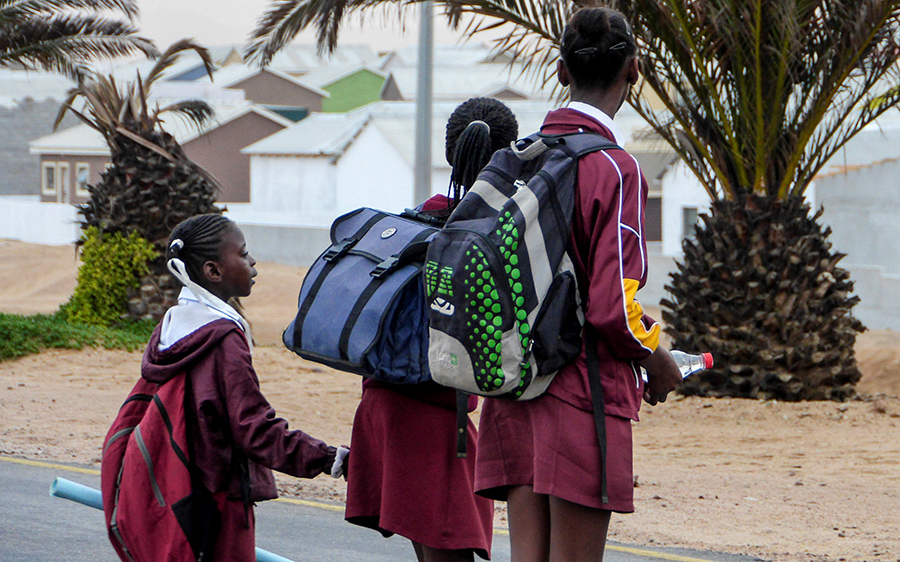Making Schools in Namibia Safer During the COVID-19 Pandemic
Summary
- COVID-19-related school closures may unintendedly increase the vulnerability of children and adolescents to family violence.
- CDC works with partners to provide support and keep schools open and safe, so that children and adolescents can access educational and protective services.
COVID-19-related school closures may unintendedly increase the vulnerability of children and adolescents to family violence. The limitations on movement outside of the home and the financial struggles affecting many families create higher levels of stress and tension, leaving many children at increased risk of physical violence at home. Many children and adolescents return from lockdown periods, having lost a mother, father, or close family relative to the pandemic. Other children and adolescents returning to school have experienced untold violence. Ensuring these children are supported with a safe environment should be a top priority for countries.

School girls in Namibia. Photo taken before the COVID-19 pandemic.
Recognizing the importance of keeping children and adolescents in school safe during the pandemic, CDC Namibia works with the Ministry of Education, Arts and Culture, UNICEF, and partners to make schools safer for children.
CDC Namibia collaborated with the Ministry of Health and Social Services, UNICEF and Africa Field Epidemiology Network (AFENET) to conduct a rapid assessment of schools in eight regions to evaluate the impact of COVID-19 and develop customized solutions. CDC Namibia is funding staff to strengthen school health services. CDC Namibia also works with the government to increase community awareness about infection prevention and control measures to protect students, staff, and their families.
“Children benefit in many ways from being in the school setting,” said CDC Namibia Acting Director, Dr. Steven Hong. “The children have everything to gain from being back at school. We encourage schools to put in place all preventative measures, including proper masking and social distancing, good ventilation of classrooms by opening windows and doors, and regular handwashing.”
Schools are central to children and adolescents’ lives and provide far more than education. In addition to the social aspects that many children thrive on, children in school learn skills to protect themselves from violence. When needed, schools can be the entry point for getting care and protection if children do experience violence in the home. CDC Namibia provides support to keep schools open and safe to provide educational and protective services to children and adolescents. In doing so, children and adolescents in Namibia are safer and have access to the education, care, and protection services they deserve.